|
"The new pipe works great, feels like I'm way up on power across the entire rev range compared to the ~15 year old expansion chamber exhaust I was using previously. Not to mention the huuuuge gain in peak power which forced me to reinforce the clutch quite a bit." engine details: exhaust duration 185, transfer duration 130, peak RPM 10,000 pipe details: Header 330mm long expanding from 30mm to 38mm. 3 cone diffuser: 55mm 5 degrees, 70mm 8.5 degrees, 50mm 14 degrees. Belly 120mm long. 2 cone Baffle: 100mm 4 degrees, 150mm 12 degrees. "I will be building a new one with peak power at a bit higher RPM and a wider power band to accommodate the gaps in my 4 speed gearbox as soon as i have some spare time. Currently restoring a second old vespa and as soon as the body work is done on that one I'll be building a pipe for that one as well. That one will be for a measly 50cc (instead of 136cc) and will be built a bit more for running around town instead of trying to break the sound barrier. " 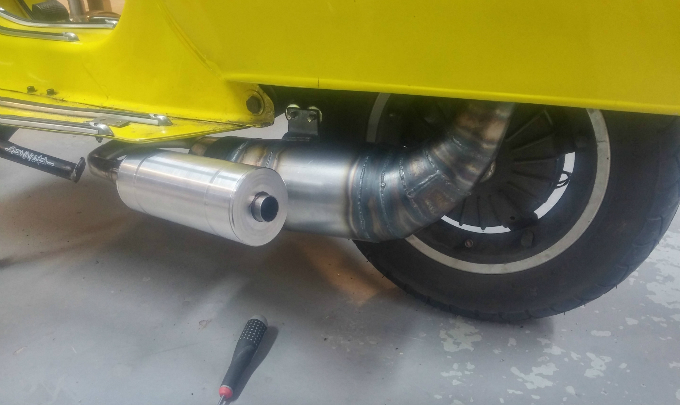 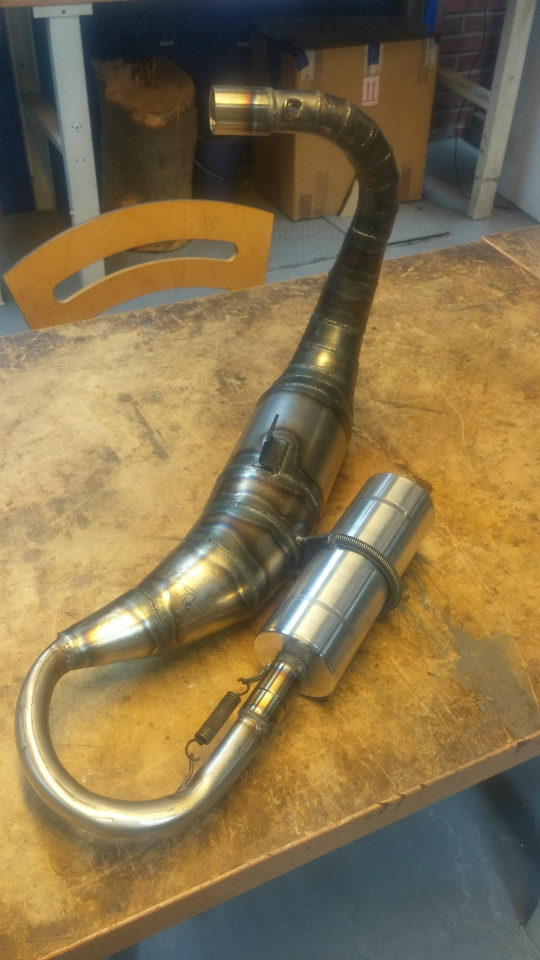 Here is a pipe someone using ECcalc built for a KTM powered kart: 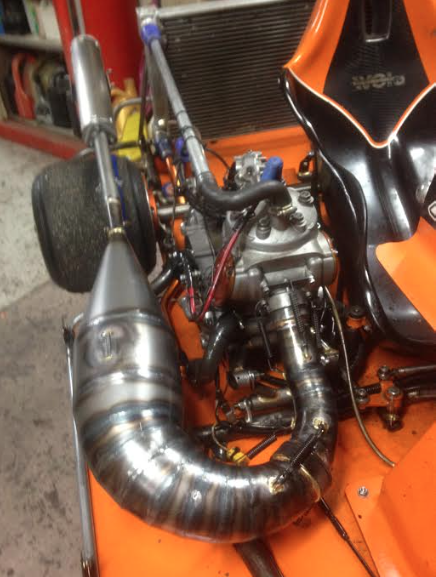 Here's the before and after photos showing the stock pipes and then the hydro-formed pipes using dimensions from ECcalc. The bike is a Kawasaki H2 750cc. I also gave him advice on porting for good street power. He wrote: "The bike is brutally fast in the midrange. Compared to a 4 stroke at similar RPM it is really strong, great for passing cars like they are standing still. It pulls harder at 80 or 90 mph than it does at 50, very torquey. Lot of fun to ride for sure. Once it hits 5000 RPM, oh shit. It launches hard, and the H2, like all those Kawasakis, has a flat seat. My ass slides back and it's all i can do to hang on, hard to shift gears, I have to get off the throttle long enough to release my death grip so I can pull the clutch and get another gear. I don't know what RPM it wants to go to, but never seems to flatten off. " 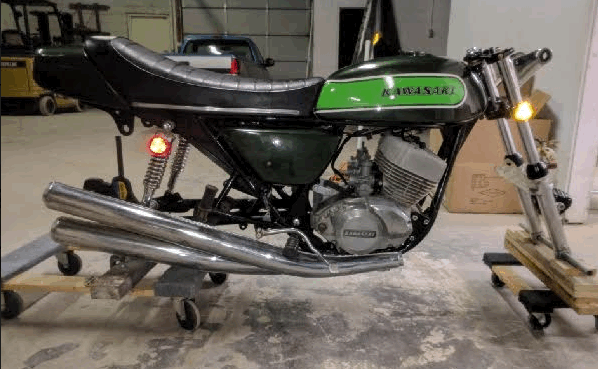 Notice the extra long belly. That is something you can exagerate on a bike like this with piston-port-only intake for an extra wide powerband. You can't go that long with a reed valve because the closeness of the diffuser return wave to the baffle wave is important at high RPM. 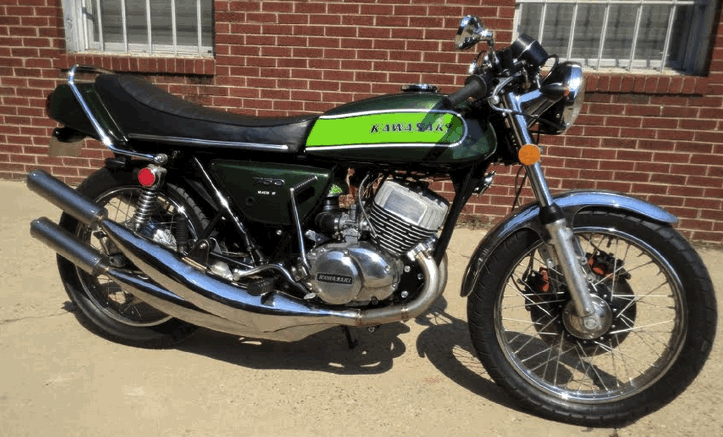 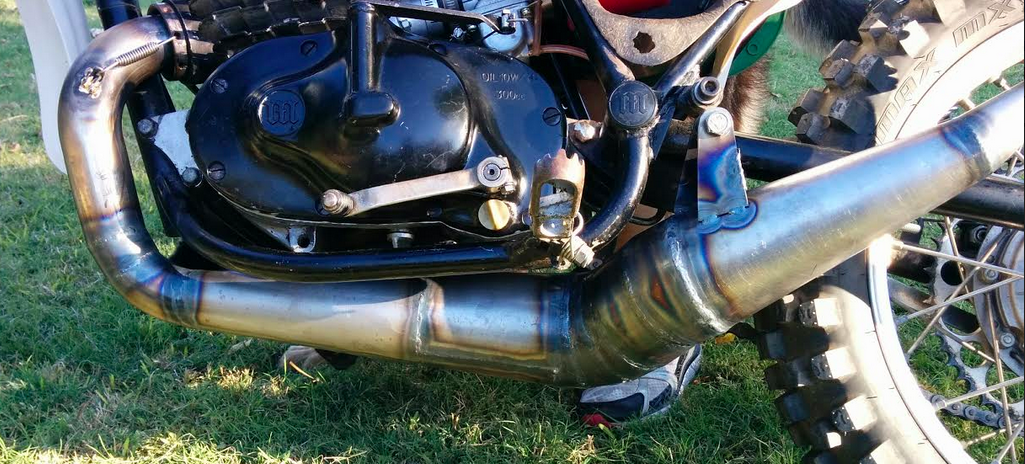 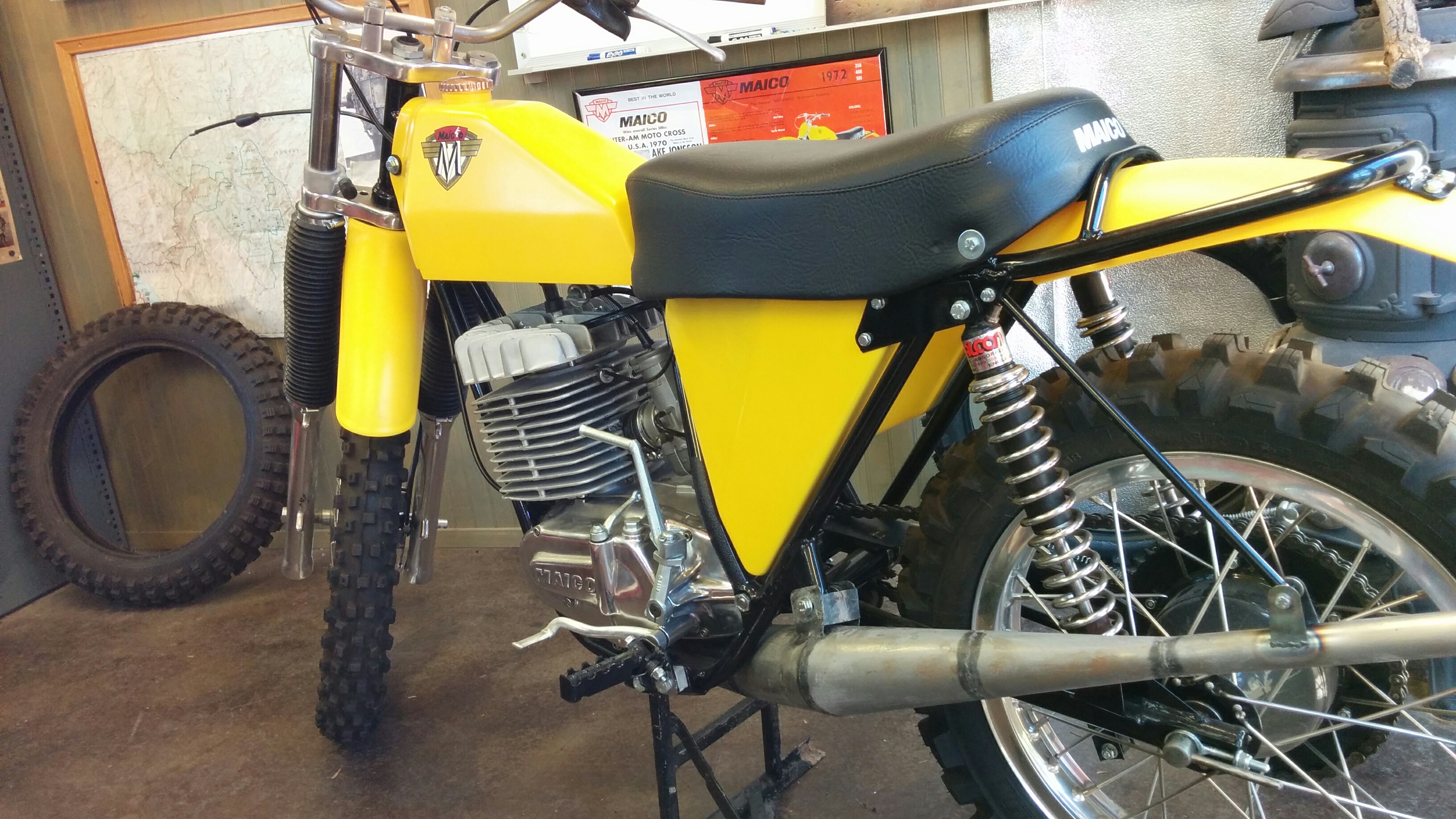 Two Maico pipes: 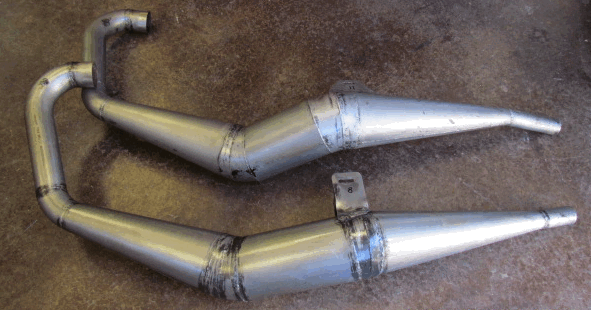 Bultaco pipe: 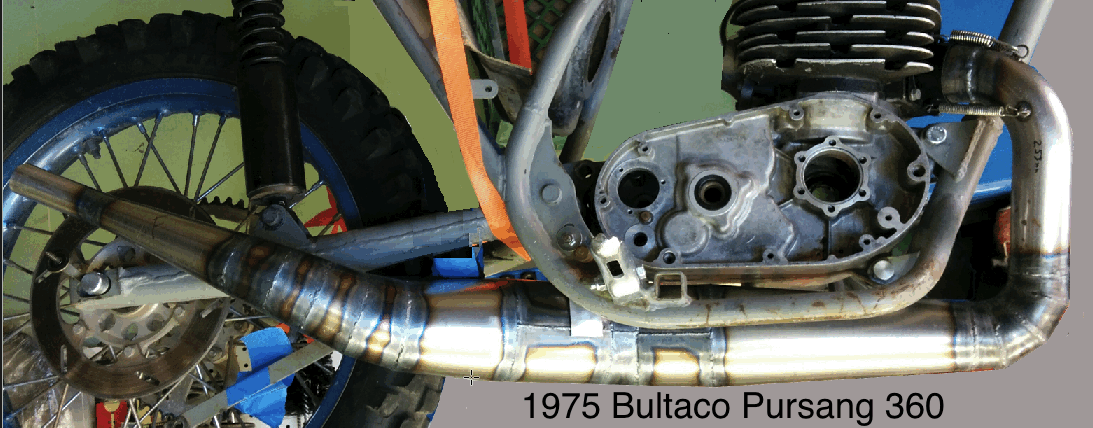 Here's another users pipe built for his Yamaha MX360: 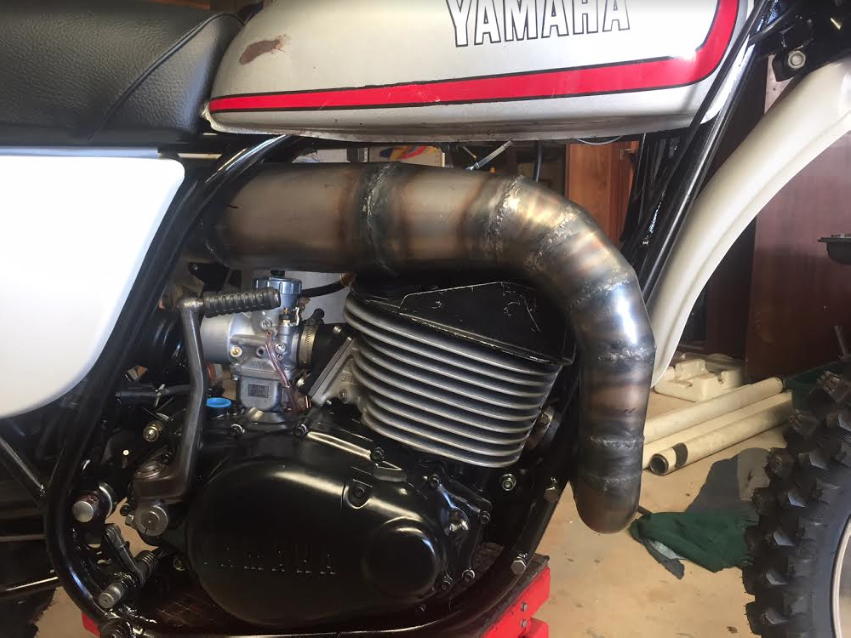 |